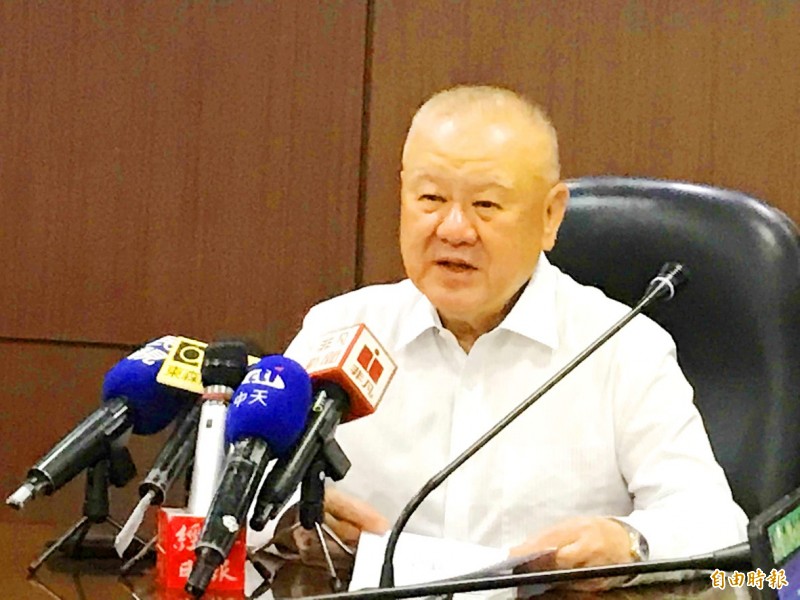《TAIPEI TIMES》 Businesses back abolition of stamp tax

Chinese National Association of Industry and Commerce chairman Lin Por-fong speaks at a news conference yesterday in Taipei. Photo: Lee Ya-wen, Taipei Times
PUSHBACK: Local governments oppose eliminating the tax, which generates about NT$12 billion in annual revenue, 100 percent of which goes to local administrations
By Crystal Hsu / Staff reporter
Business leaders yesterday welcomed an Executive Yuan proposal to scrap the stamp tax, saying the move to ditch an obsolete levy was long overdue and would help simplify the nation’s taxation system.
The Chinese National Association of Industry and Commerce (工商協進會) urged local governments to support the Cabinet’s decision to abolish the tax, which generates about NT$12 billion (US$381.7 million) in annual tax revenue.
“It is an outdated duty the government has promised to address, but has failed to take action until now,” association chairman Lin Por-fong (林伯豐) told a news conference in Taipei.
The business group has pushed for the tax’s abolition for decades and Premier Su Tseng-chang (蘇貞昌) gave a positive feedback during a meeting in May, he said.
Stamp tax revenues go directly to local government coffers, with tax rates of 1 to 4 percent on four types of documents: receipts for certain monetary payments, contracts to perform a specific job or task, contracts for the sale of movable properties, and contracts for the sale and transfer of real estate.
The group has argued that the stamp tax overlaps with the business tax, which subjects all business transactions to a 5 percent levy whether or not they turn a profit.
The stamp tax is unfavorable to business activity and fuels controversy, as taxpayers and authorities often disagree over taxable terms, Lin said.
The news conference came after local governments voiced their opposition to the proposal, saying it would deprive them of an important source of income amounting to NT$1 billion a year.
The Ministry of Finance on Wednesday reiterated that it would amend the Act Governing the Allocation of Government Revenues and Expenditures (財政收支劃分法) and use the central government’s money to make up for revenue shortfalls.
New Taipei City Mayor Hou You-yi (侯友宜) raised concern that the suggested subsidy might come from funds originally earmarked for the city.
All local administrators frown on axing the stamp tax.
A lack of trust between local and central governments should not be the reason to keep the stamp tax, Lin said.
Rather, the Cabinet should talk to local administrators to calm their worries and try to meet their financial needs the best it can, Lin said.
The Cabinet has listed the stamp tax as a priority bill in the forthcoming legislative session.
The association would next move to lower commodity taxes among others, Lin said, after a recent setback over the increase in basic wages.
新聞來源:TAIPEI TIMES















